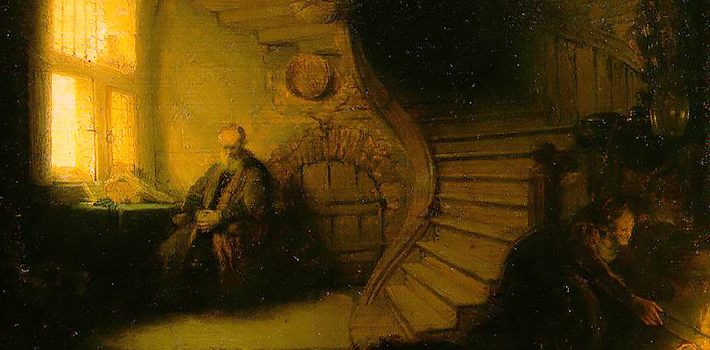
Español “Philosophy is human life taken seriously,” says Argentinean thinker Gabriel Zanotti in his book Philosophy for Philosophers. Anyone who questions his existence is, in a sense, a philosopher, he claims.

As if to assuage any anxiety over the topic, the author uses the first page to addresses the common misconception of philosophy as a complicated discipline. “Philosophy is neither easy nor difficult: it is an intellectual habit, a way of asking yourself things that, like all habits, are complicated at the beginning but gradually become easier.”
Philosophy is a fundamentally human exploration, which is what Zanotti seeks to explain throughout the 12 chapters of his book. The author examines a diverse array of philosophical trends, and how many have already become integrated into our everyday lives without our noticing. Throughout the book, Zanotti shares many of the personal reflections that led him to devote his life to this branch of knowledge.
In his first chapter, “What Is Philosophy?” Zanotti explains precisely why philosophy and life are so intimately bound together. The author recalls a time when he reached a crossroads in life, and was presented with two fundamental choices: live or be lived. For Zanotti, being lived means being swept away by circumstances beyond human control, never wondering who he is or why he does the things he does.
Philosophy is neither easy nor difficult: it is an intellectual habit, a way of asking yourself things that, like all habits, are complicated at the beginning but gradually become easier.
On the contrary, he who takes these questions seriously is living, and is not swept away by the swiftness of life. He takes life into his own hands and lacks neither depth nor maturity. It is to be radical in ones capacity to question.
As an example, Aristotle continues to play an important role in our way of thinking. Concepts that we use on an everyday basis such as cause, effect, necessity, non-necessity, one, multiple, quantity, quality, and relation are all owed to this giant of classical Greece.
Reading Aristotle is undoubtedly difficult, but Zanotti encourages us not to become discouraged when philosophers confront us with questions that seemingly have no answer. Instead, we should be glad that these authors have inspired us to think. “What is important is what they tell you. In turn, you must not cling to your own interpretation, but discuss it,” says Zanotti.
In order to understand the works of these great philosophers, we must first understand the questions that they pose. This is even more important than understanding the answers to their questions.
Philosophy for Philosophers is not a difficult read. The chapters that follow focus on the evolution of the discipline dating back to medieval philosophy, which reached its height with Thomas Aquinas. The book then touches on the Renaissance, and thinkers such as René Descartes, David Hume, and Immanuel Kant, before moving on to the scientific focus of the 20th century.
“My role is to signal paths. Following them is up to each individual,” says Zanotti at the conclusion of his chapter dedicated to Thomas Aquinas, the philosopher who appears to have had the greatest influence on his life. Zanotti explains and rationalizes the harmonious relationship between reason and faith. Themes of God, alongside the soul and freedom, are central throughout the pages dedicated to Kant, who the author considers the king of modern philosophy.
My role is to signal paths. Following them is up to each individual.
Approaching the end of the book, the author warns us of the concept of being at “the end of something.” This is a fallacy that humans should never have incorporated into language. The reality is that an end often simply signals the emergence of a new beginning awaiting discovery. Imposing such limitations on ourselves often prevents knowledge and daily life from broadening our personal horizons.
“If we take serious the notion that we must always keep broadening the horizons of our worlds, we understand that we will never truly arrive at the end of anything. There will always be a new horizon awaiting us ahead,” Zanotti explains.
At the end of the book, we are invited to question the “why” of our lives, and with the help of already established thinkers, relate their questions and conclusions to our everyday lives, thus becoming philosophers ourselves.
Translated by Peter Sacco. Edited by Guillermo Jimenez.
 Versión Español
Versión Español












